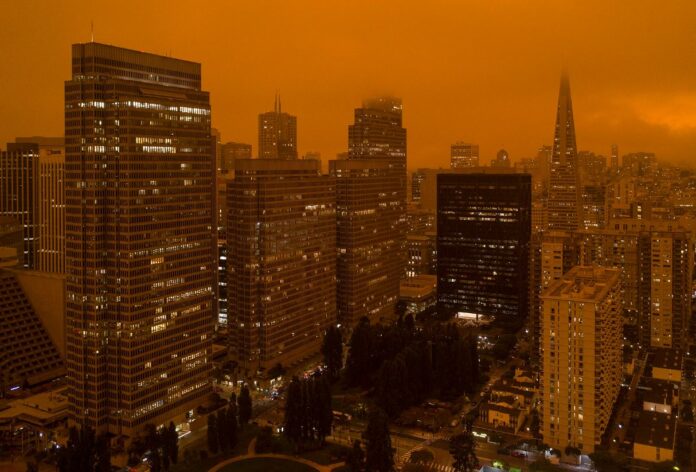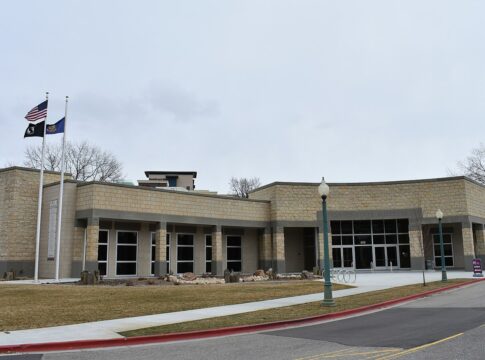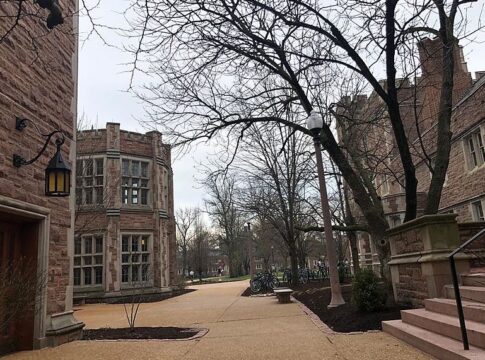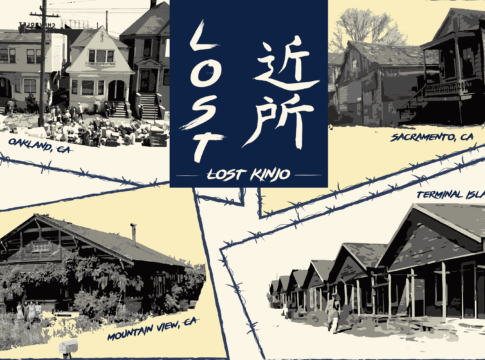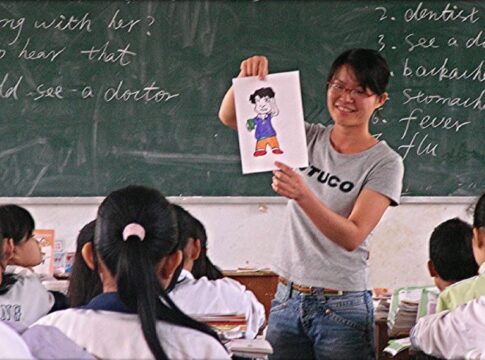Representatives of several nonprofits serving Asian American elders in San Francisco Chinatown have begun speaking out about the need for funds to protect older adults from climate disasters, quoted in the SF Public Press.
Heatwaves, floods, heavy rainstorms, wildfires and other climate disasters have been devastating communities across the globe at an increasing rate in recent years, but the impact isn’t felt equally. Certain factors put some people at more risk, and when those factors intersect, the effects of climate disasters can be extremely severe.
For Asian American elders living in San Francisco’s Chinatown—and others across the country—the damage the smoke from wildfires can do is extreme.
“Climate change definitely affects our seniors’ quality of life as well as their health,” according to Anni Chung, the president and CEO of Self-Help for the Elderly, a nonprofit operating in SF’s Chinatown and elsewhere since 1966.
Asian American elders face increased health impacts from the respiratory effects of wildfire smoke, like all elders. But the issues are exacerbated by so many Chinatown resident elders living in small, cramped rooms with poor ventilation, many in single-room-occupancy hotels. Further, language barriers, mobility issues and financial inequalities can get in the way of medical care and procuring protective equipment like air filters or masks.
LATEST STORIES
Across the Bay in Oakland’s Chinatown, organizations there have also sounded the alarm about the impact of climate change on elders there. The San Francisco Chronicle reports, a project is underway to renovate the Lincoln Center Recreation Center. The goal is to turn the center into a place where elders can go during times of power outages, wildfires and heavy smoke- all of which have increased as climate change has worsened.
“We have more smoke days where people need clear air, we have ongoing power outages … where people need reliable access to electricity, whether for really critical needs like home-based medical equipment or just daily needs like charging your cell phone,” said Oakland’s Sustainability and Resilience Director, Daniel Hamilton.
For Shao Ao Situ, 81 years old, the wildfires smoke that covered San Francisco in 2020 meant constant discomfort in his throat and a difficulty sleeping. “I was severely affected,” he said.
In 2010, San Francisco’s Department of Public Health used funding from the DCD to launch one of the first programs in the nation to investigation the effects of climate change on the health of residents, resulting in regular reports. The assessments have evaluated more than just the impacts of wildfire smoke, being concerned with air pollution, heatwaves and flooding, and look beyond Chinatown to neighborhoods including Bayview-Hunters Point, South of Market, Civic Center and Visitacion Valley.
Chinatown received the lowest score from the Department of Public Health for its climate resiliency, and reports emphasized the risk to the elderly population.
According to Dr. Andrew Chang, a cardiologist at the University of California says some elders who live alone and can’t obtain fresh fruit or vegetables during severe rain without risking a fall might turn to unhealthy pantry staples or frozen foods, exacerbating pre-existing conditions.
The rise in anti-Asian hate in 2020 crimes combined with their emotional anguish over the effects of the climate disasters like San Francisco’s wildfire smoke, heatwaves and freak rainstorms, along with the pandemic, three powerful hits to Asian elders’ mental health.
The nearby cities of Richmond and Berkeley also have plans in the works to protect seniors from climate change, according to the Chronicle. Organizers hope to invest in “community centers that are trusted, so people don’t have to leave the place where they know they feel safe.”
But Michael Liao, the direct or programs at the NICOS Chinese Health Coalition, wants us to also focus on the resilience of Asian elders, not just the threats that face them.
“I know a lot of times we focus on more of the negative aspects — what are some of the deficits and the needs — but I think it’s also important to highlight that within the Chinese community, there’s a lot of resilience,” he said, and praised some elders for doing their due diligence to fact-check health information they heard over WeChat and other social media, key to staying healthy at a time when misinformation is rampant.
AsAmNews is published by the non-profit, Asian American Media Inc. Follow us on Facebook, X, Instagram, TikTok and YouTube. Please consider making a tax-deductible donation to support our efforts to produce diverse content about the AAPI communities. We are supported in part by funding provided by the State of California, administered by the California State Library in partnership with the California Department of Social Services and the California Commission on Asian and Pacific Islander American Affairs as part of the Stop the Hate program. To report a hate incident or hate crime and get support, go to CA vs Hate.

